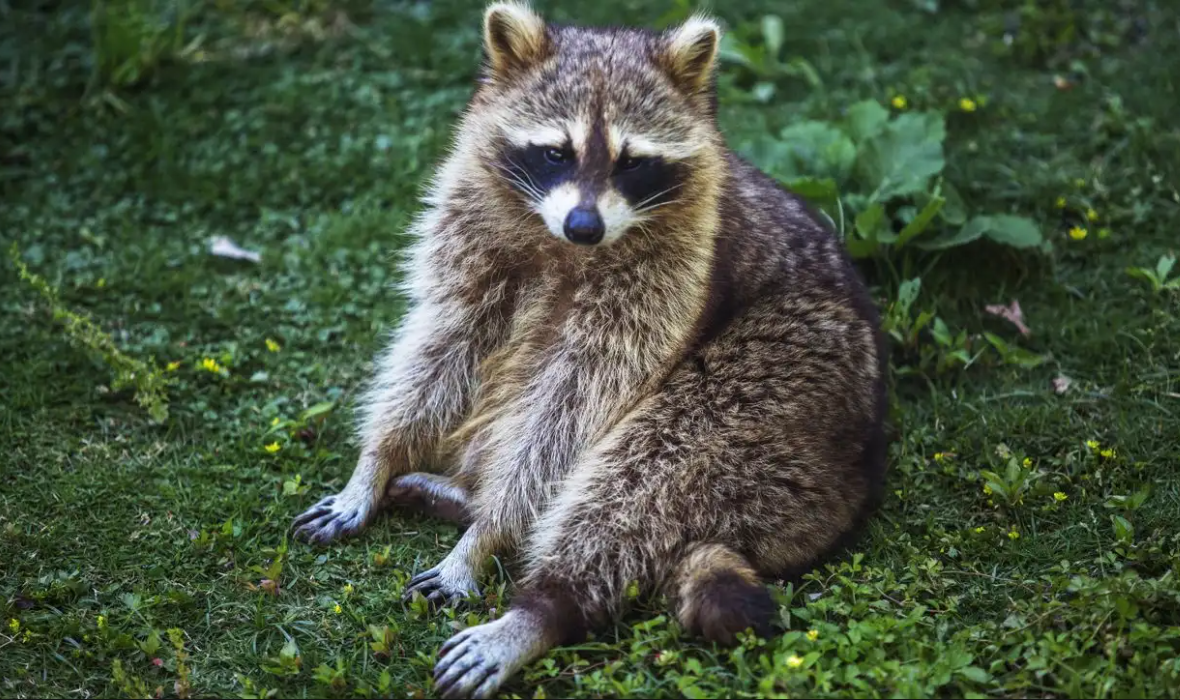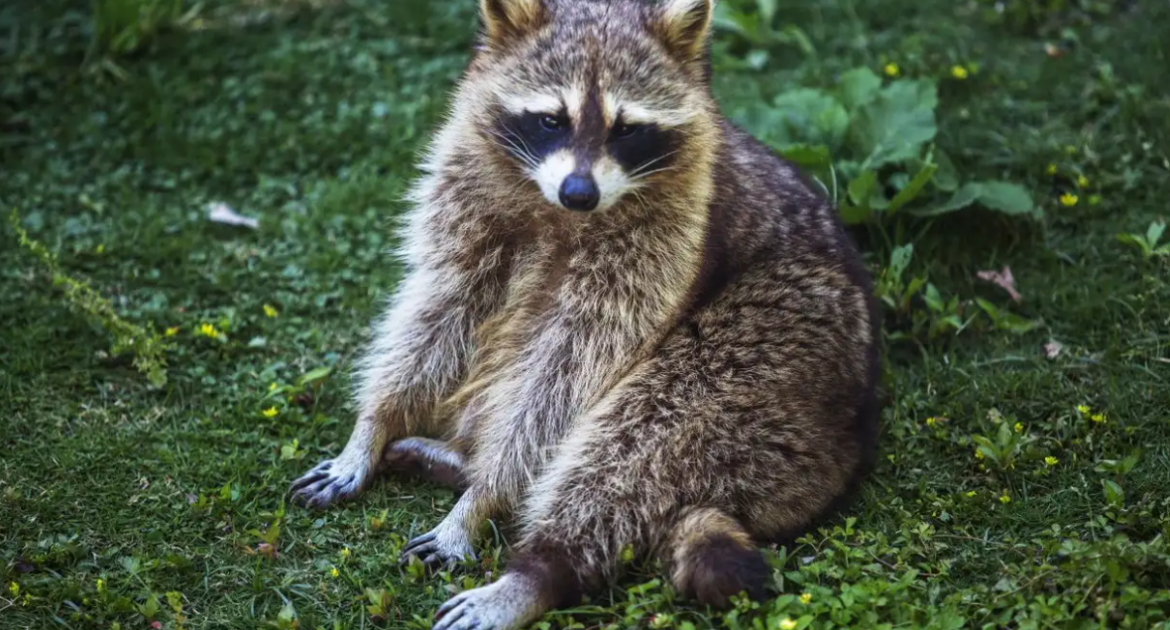If you’re dealing with raccoons in Toronto, understanding their behavior is key to effective wildlife removal. These fascinating creatures are known for their adaptability and nighttime habits. They’re most active after sunset and just before dawn, so seeing them during the day is rare, but not impossible. Although they don’t hibernate, raccoons do slow down during the coldest parts of winter, seeking shelter to save energy.
Homeowners should keep these patterns in mind when addressing raccoon encounters. By focusing on these behaviors, professional wildlife control services like Skedaddle can provide humane and effective solutions for managing raccoon populations in urban areas. If you’re facing challenges with these nocturnal visitors, knowing their activity times can make a big difference in your wildlife removal strategy.
In this guide, we’ll dive into the activity patterns of raccoons, why they might choose your property, and why expert removal services like Skedaddle are crucial for handling these nighttime guests.
When Are Raccoons Most Active?
Raccoons are primarily nocturnal animals, meaning they are most active during the night. They have adapted this behaviour as a survival strategy, allowing them to avoid predators and human activities. Typically, these animals will start their nightly activities just after sunset and continue through the night, often returning to their resting places by early morning. However, it’s not entirely uncommon to see one during the day, especially if food is scarce or they feel threatened.
Raccoons are creatures of habit and tend to follow a daily routine. As dusk falls, they emerge from their resting spots to begin their search for food. This period, from sunset to midnight, is when they are most active. During these hours, they are busy foraging for food, which can include anything from fruits and insects to garbage left out by humans. Their keen sense of smell and dexterous paws make them highly efficient scavengers.
As midnight passes, their activity levels may decrease slightly, but they remain active until the early hours of the morning. By sunrise, most of them will have returned to their dens, which could be in trees, burrows, or, unfortunately, attics and garages in urban areas like Toronto.
Do Raccoons Hibernate?
A common question homeowners have is whether raccoons hibernate. The answer is no, they do not hibernate. Instead, they go through a period of reduced activity during the winter months known as torpor. During this time, they will spend more time in their dens and less time foraging for food. They rely on fat reserves built up during the warmer months to survive when food is scarce. However, if temperatures rise for extended periods, they might venture out in search of food even in the middle of winter.
Why Raccoons Choose Your Property
Raccoons are opportunistic animals, always on the lookout for safe and resource-rich environments. Your property can be an attractive option for several reasons:
- Food Sources: They are attracted to easily accessible food. This could be pet food left outside, unsecured garbage bins, compost piles, or even bird feeders.
- Shelter: Urban environments provide numerous hiding spots for raccoons. Attics, basements, garages, and sheds offer protection from the elements and predators. These areas are particularly appealing during the colder months when they seek warmth.
- Water: Like all animals, raccoons need water to survive. Properties with ponds, birdbaths, or even leaky outdoor faucets can attract raccoons.
Understanding these factors can help you take preventative measures to make your property less appealing to these animals. However, if you already have a problem, it’s best to call in professionals rather than attempting to handle the situation on your own.
Why DIY Raccoon Removal Is Not Recommended
It’s understandable that homeowners might consider handling a wildlife problem themselves. After all, it seems straightforward enough to set up a trap and relocate the animal. However, there are several reasons why DIY wildlife removal is not advisable:
Raccoons can carry diseases that are transmissible to humans and pets, such as rabies and leptospirosis. Handling a raccoon without proper protection and training can put you at risk of infection.
Raccoons are wild animals and can become aggressive if they feel threatened. They have sharp claws and teeth, which can cause serious injury.
Successfully catching and relocating a raccoon does not guarantee that other raccoons will not take its place. Moreover, relocated raccoons often struggle to survive in unfamiliar environments, which is not a humane solution.
In many areas, including Toronto, there are specific regulations regarding the capture and relocation of wildlife. Violating these laws can result in fines.
Given these risks, it’s clear that professional raccoon removal services are the safest and most effective option.
Why Skedaddle is Your Best Choice for Raccoon Removal
When it comes to wildlife removal, Skedaddle stands out as the leading expert in humane and effective wildlife control. Here’s why:
Skedaddle has been in the wildlife control industry for over 30 years, providing comprehensive solutions for raccoon removal. Our team of trained professionals understands their behaviour and knows how to handle these animals safely and humanely.
At Skedaddle, we prioritize the welfare of the animals while ensuring the safety and comfort of our clients. Our methods involve humane removal, as well as exclusion techniques to prevent raccoons from returning.
Our services go beyond just removing the raccoons. We also inspect your property to identify potential entry points and seal them off to prevent future infestations. Additionally, we offer cleanup and decontamination services to address any mess or damage caused by the raccoons.
Skedaddle prides itself on delivering exceptional customer service. We work closely with homeowners to ensure their concerns are addressed and provide ongoing support to maintain a raccoon-free environment.
Our team is fully licensed and insured, giving you peace of mind that professionals are handling your wildlife control needs in compliance with all local regulations.
How Skedaddle Handles Raccoon Removal
When you contact Skedaddle for removal services, you can expect a thorough and professional approach. Our team begins with a detailed inspection of your property to determine the extent of the problem. We look for signs of raccoon activity, such as droppings, footprints, and damage to structures.
Using humane removal methods, we safely capture the raccoons. Our removal process is designed to minimize stress for the animals, and we handle them with care throughout the process.
After the raccoons are removed, we focus on preventing future infestations. This involves sealing off entry points and reinforcing vulnerable areas of your property. We use durable materials and techniques that are effective and long-lasting.
Raccoons can leave behind a mess, including droppings and nesting materials. Our team thoroughly cleans and disinfects the affected areas, removing any traces of the raccoons and addressing potential health hazards.
Reliable and Humane Wildlife Removal in Toronto
Raccoons can cause significant damage and pose health risks if they decide to make your home their own. Understanding their behaviour and knowing when they are most active can help you take preventative measures. However, if you’re already dealing with a raccoon problem, it’s essential to seek professional help.
Skedaddle is here to provide reliable and humane raccoon removal services in Toronto. With our expertise, commitment to customer satisfaction, and comprehensive approach, we ensure your home is safe and raccoon-free.
Don’t wait until the problem escalates. Contact Skedaddle today to schedule your initial assessment and take the first step towards a secure and comfortable living environment. Your peace of mind is our priority, and we are dedicated to providing the best wildlife control solutions for your home.
Reach out to us now and let Skedaddle handle your wildlife removal needs with professionalism and care.




